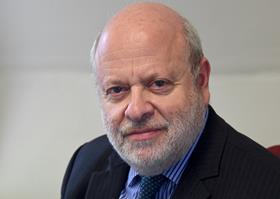I was asked for my views on a draft document this week (not from the Law Society) which stated, as one of its several principles, that lawyers should support all efforts to have laws enacted in their home jurisdiction that would require the disclosure of ultimate beneficial ownership of any incorporated entity formed within that jurisdiction.

That goes too far, and is symptomatic of a general drift to bend lawyers to do what some people think is in the public interest. We may privately believe that there should be laws about the disclosure of beneficial ownership. But that is different to imposing on lawyers an obligation – whatever ‘should’ means in that sentence – to support particular forms of legislation.
Whatever a lawyer does in his or her private time is of no interest to the regulator, provided it does not bring the profession into disrepute. And his or her political affiliations are irrelevant. Indeed a lawyer may be dead set against the disclosure of beneficial ownership, and actively campaign against it in his or free time, provided that as a lawyer all laws and ethical principles are followed.
We see this aim to have lawyers behave in accordance with current viewpoints all the time. I reported around 18 months ago about the effort by the Law Society of Upper Canada to impose an obligation on lawyers to promote equality, diversity and inclusion generally, and not only in their lawyers’ practices, even though there was no such obligation in the ethical code. Again, we may well privately support the intention behind the effort. But, in our capacity as lawyers, our ethical codes should be our guide.
In the same vein (because it might result in more soft law guidance for lawyers), there was much comment in the Gazette this week under the article which reported the evidence given by Professor Richard Moorhead to the House of Commons’ Women and Equalities Committee. He said airily that lawyers have a duty to pay attention to the public interest and were often not doing so (this in relation to the drawing up of non-disclosure agreements).
The confidence behind his delivery rested on the assumption that there is general agreement about what is in the public interest.
To take the question more generally first, is it in the public interest that Shamima Begum has been stripped of her British citizenship? Is it in the public interest that Brexit goes ahead? Is it in the public interest that we retain first-past-the-post in our parliamentary voting system? Or that we have a monarch? There are robustly conflicting answers to each of these questions. If there is a legal dispute, a court will settle it in line with current legislation. At the end, parliament is the final arbiter, being able to pass new laws.
We know that the very notion of what is in the public interest has changed over the centuries – for instance, the institution of slavery, the right of the poor to vote, and the role of women (taken in no order, and with no intention to compare one issue with the other in terms of gravity or anything else).
It might be said that non-disclosure agreements are a different matter, where all would agree that a victim who has been sexually harassed should not be silenced and a crime covered up. But, as many have pointed out, non-disclosure agreements cover a wide variety of activities, and even where sexual harassment is at issue, there may be competing claims to the public interest.
The question is who decides what is in the public interest? Under our system, as I have said, the courts and parliament are responsible. If the answer is clear, the solicitor must follow what is in the public interest (meaning here the rule of law and the administration of justice), regardless of the clients’ wishes. But what if the answer is not clear, which must be the position in a great number of cases? How does the solicitor balance the clients’ wishes against what may or may not be in the public interest?
I have seen, among lawyers who follow legal policy, an increasing distrust of soft law issued by non-regulators, usually guidelines or principles, because such guidance burdens lawyers with more obligations not in their ethical codes, and which might be used against them in litigation. Such guidelines are, in essence, an attempt to make the lawyer decide what is in the public interest in accordance with a set of views.
Of course, the lawyer has to decide the balance in each case. But the criteria should be the lawyer’s ethical code and the current law. Attempts by others, however well-meaning, to push the lawyer to decide this way or that in accordance with a particular viewpoint should be resisted.































3 Readers' comments